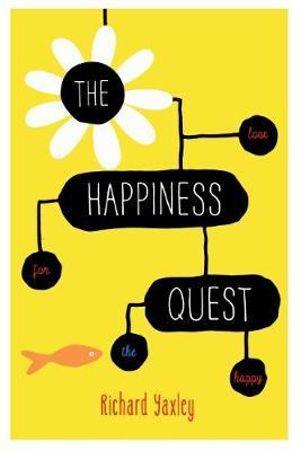Richard Yaxley, The Happiness Quest, Scholastic, August 2018, 240 pp., $18.99 (pbk), ISBN 9781742991993
Dazzled by a cheery sunshine yellow cover, Yaxley’s tenderly observant prose quickly lands you in a pit of shadows, as fifteen year old Tillie Bassett tries to make sense of her inexplicable sadness. Set within suburban Brisbane, Tillie’s heart weighs heavily, feeling the world at a distance as she struggles to pass each day in the clutches of a lingering depression.
Surrounded by the support of her favourite people, Tillie’s loneliness in her spiralling sadness, and Yaxley’s ability to express that darkness, with references and quips from urban everyday Australian life, provides a moving credibility to Tillie’s experiences. A poetic rush of urban life hurries on as Tillie struggles to see her own worth. Yaxley weaves the two time-zones of Tillie’s inner and outer life intelligently and sensitively through Tillie’s thoughts.
I felt that Yaxley’s ability to portray the difficulties that her parents, Henry and Susan, and her closest friends, Macy and Snake have in trying to find ways to help Tillie, and the desperation of trying to understand, powerfully strengthens this story into more than just a just a single-minded search for self. Tillie’s predicament is somehow amplified as a modern story because she is acutely aware that she has a life of relative privilege, surrounded by family love and caring teachers. She understands intellectually that her life should pave the way for happiness rather than sink her.
Tillie navigates fracturing and evolving relationships and questions that rattle at the old bones of secrets in the family closet. Tillie’s family and friends can only do so much. As they rally to help Tillie to cure her sadness with every therapy from soft love, tough love, clinics, counsellors, cures and coffee, Tillie can only exist deeper within her sadness until she finds the last places left to search. It is important to note that the strange nothingness causing Tillie to feel like a puppet of those around her is emotionally complex, and touches on issues of death and self-harm.
A perceptive exploration for young adults, navigating the many misdirections encountered in traversing mental health challenges, when it feels like the only things that you have in order to find your bearings, is a torn map and a broken compass.
Reviewed by Angela Brown






